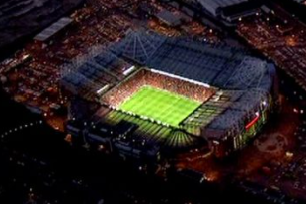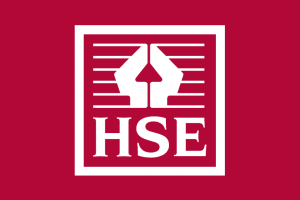Three North West clubs in controversial proposed ‘breakaway’ football league

Manchester United has confirmed its participation in a proposed new league competition, along with 11 European clubs, which commentators claim could cause the biggest shake-up in the professional game.
The 12 clubs have established a new mid-week competition, the Super League, governed by its founding clubs, which are: AC Milan, Arsenal FC, Atlético de Madrid, Chelsea FC, FC Barcelona, FC Internazionale Milano, Juventus FC, Liverpool FC, Manchester City, Manchester United, Real Madrid CF and Tottenham Hotspur.
It is anticipated that a further three clubs will join ahead of the inaugural season, which is intended to commence as soon as practicable.
Going forward, the founding clubs say they look forward to holding discussions with UEFA and FIFA to work together in partnership to deliver the best outcomes for the new league and for football as a whole.
The formation of the Super League comes at a time when the global pandemic has accelerated the instability in the existing European football economic model, says Manchester United.
Further, it says, for a number of years, the founding clubs have had the objective of improving the quality and intensity of existing European competitions throughout each season, and of creating a format for top clubs and players to compete on a regular basis.
The clubs says the pandemic has shown that a strategic vision and a sustainable commercial approach are required to enhance value and support for the benefit of the entire European football pyramid.
In recent months extensive dialogue has taken place with football stakeholders regarding the future format of European competitions. The founding clubs believe the solutions proposed following these talks do not solve fundamental issues, including the need to provide higher quality matches and additional financial resources for the overall football pyramid.
The proposed format for the new competition would see 20 participating clubs with 15 founding clubs and a qualifying mechanism for a further five teams to qualify annually based on achievements in the prior season.
Midweek fixtures with all participating clubs continuing to compete in their respective national leagues, preserving the traditional domestic match calendar which remains at the heart of the club game.
An August start with clubs participating in two groups of 10, playing home and away fixtures, with the top three in each group automatically qualifying for the quarter finals. Teams finishing fourth and fifth will then compete in a two-legged play-off for the remaining quarter-final positions.
A two-leg knockout format will be used to reach the final at the end of May, which will be staged as a single fixture at a neutral venue.
As soon as practicable after the start of the men’s competition, a corresponding women’s league will also be launched, helping to advance and develop the women’s game.
The founding clubs claim the new annual tournament will provide significantly greater economic growth and support for European football via a long-term commitment to uncapped solidarity payments which will grow in line with league revenues.
These solidarity payments will be substantially higher than those generated by the current European competition and are expected to be in excess of €10bn during the course of the initial commitment period of the clubs.
In addition, the competition will be built on a sustainable financial foundation with all founding clubs signing up to a spending framework. In exchange for their commitment, founding clubs will receive an amount of €3.5bn solely to support their infrastructure investment plans and to offset the impact of the COVID pandemic.
Florentino Pérez, president of Real Madrid CF and the first chairman of the Super League, said: “We will help football at every level and take it to its rightful place in the world. Football is the only global sport in the world with more than four billion fans and our responsibility as big clubs is to respond to their desires.”
Backing the new European league, Andrea Agnelli, chairman of Juventus and vice-chairman of the Super League, said: “Our 12 founder clubs represent billions of fans across the globe and 99 European trophies.
“We have come together at this critical moment, enabling European competition to be transformed, putting the game we love on a sustainable footing for the long term future, substantially increasing solidarity, and giving fans and amateur players a regular flow of headline fixtures that will feed their passion for the game while providing them with engaging role models.”
Joel Glazer, co-chairman of Manchester United and vice-chairman of the Super League, said: “By bringing together the world’s greatest clubs and players to play each other throughout the season, the Super League will open a new chapter for European football, ensuring world class competition and facilities, and increased financial support for the wider football pyramid.”
But the proposals have met with universal criticism, with calls for Europan and world authorities, UEFA and FIFA to ban the participating clubs in their current national leagues and competitions and to ban players of the Super League from representing their countries at international level.
Gary Neville, former Manchester United captain and now a TV pundit, said: “I’m a Manchester United fan and have been for 40 years of my life, but I’m disgusted, absolutely disgusted.
“I’m disgusted with Manchester United and Liverpool most. Liverpool pretend ‘you’ll never walk alone’, the people’s club, the fans’ club. Manchester United, born out of 100 years of workers around here, and they’re breaking away into a league without competition, that they can’t be relegated from. It’s an absolute disgrace.
“We have to wrestle back the power in this country from the clubs at the top of this league, and that includes my club.
“It’s pure greed. They’re imposters. The owners of this club, the owners of Liverpool, the owners of Manchester City, they’re nothing to do with football in this country.”







